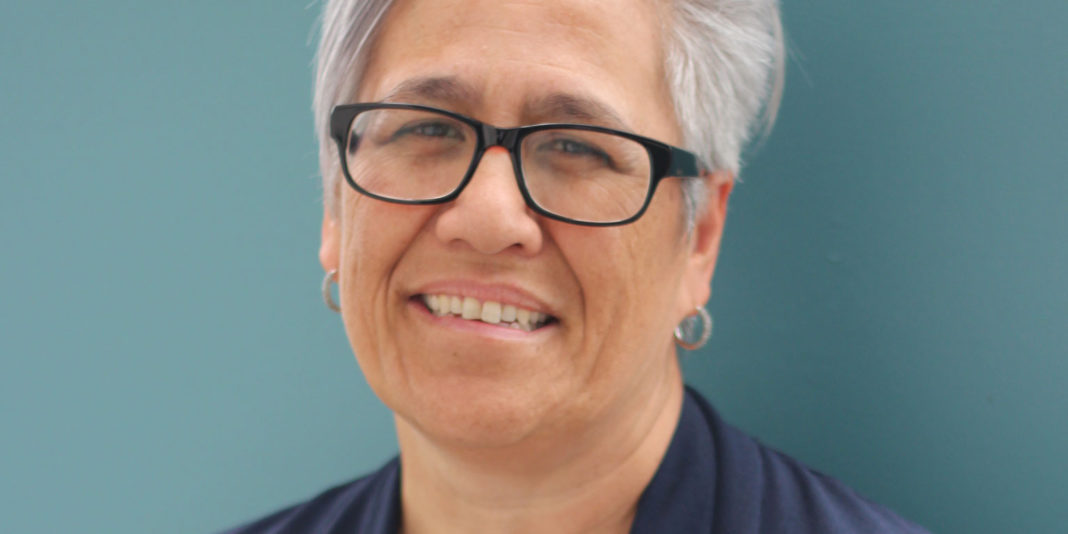Margareth Broodkoorn is looking forward to helping nursing be at the forefront of addressing health equity issues in her new role as Chief Nursing Officer.
The Ministry of Health announced this week that Broodkoorn, of Ngāpuhi and Dutch whakapapa, had been appointed to the role. She is believed to be the first chief nurse of Māori descent since the forerunner of the role was created nearly a century ago. Her appointment follows the resignation of Dr Jane O’Malley, who left the Ministry in February to take up the role of Plunket’s first chief nurse.
Broodkoorn, who has been director of nursing and midwifery at Northland DHB since 2010, told Nursing Reviewsaid she was feeling very excited – and a little nervous – about the opportunities and potential of the senior national role, but also sad at leaving Northland.
“It is an honour to represent nursing and be the first Māori nurse to be appointed to a role like this,” said Broodkoorn. She said she had also been humbled by the amount of texts, emails, phonecalls, tweets and Facebook messages from colleagues, friends and family from across New Zealand but also overseas.
New-look Ministry
In February she will join the country’s first Chief Allied Health Professions Officer Martin Chadwick and Chief Medical Officer Dr Andrew Simpson in the new ‘Clinical Cluster’ created as part of a restructuring of the ministry management team, carried out by new Director General of Health Dr Ashley Bloomfield, that came into effect in October.
Broodkoorn, is excited to be joining the Ministry under Bloomfield’s leadership and said she shared his commitment to achieving health equity in outcomes across the country which would also be one of her big priorities in her new role.
“I believe nursing is well placed to contribute to that – I think we need to ensure that nursing is leading that change and in order to do that we need a sustainable nursing workforce that is future focused and prepared for that change.”
She said to do that nursing needed a robust workforce pipeline from ensuring future nurses have the right school preparation through to supporting new graduate nurses once trained and retaining them in the workforce. Also on her agenda was how to further develop more advanced and expanded nursing roles in the three scopes of practice – registered nurses, enrolled nurses and nurse practitioners. “And of course on the radar is (doing the same) for our Māori and Pacific nursing workforce.”
“Also how do we add value as a profession where we work as a team and work with our other professional colleagues and clinical partners to contribute the leadership of the health and social sector as a whole.”
Wearing two hats
Broodkoorn said she applied for the role for a number of reasons – including being encouraged by a number of people – and the chance to represent nursing as a Māori nurse. She has been clinical lead for Ngā Manukura o Āpōpō – the national Māori nursing and midwifery workforce development programme.
“It is my passion to encourage others to be able to be ready and step up into roles like this. And if I wasn’t prepared to do that myself I shouldn’t be asking that of others.” Also she recognised the importance of having a New Zealand and a Māori nurse in the role.
“I think Māori nursing has been asking for it for some time – in terms of having a Māori nurse leader in the Ministry and I suppose the Ministry and the health sector gets a “two-for-one deal,” she laughed.
“Having a bicultural heritage – having grown up with both Dutch and Maori heritage – I feel I’ve grown up with the best of both worlds and bringing an inherent equity focus into the chief nurse role is timely and a great fit.”
She said she had learnt to combine the synergies between her two cultures and her profession and was looking forward to demonstrating how that can work. “Not just from being a Maori nurse but how I can share that understanding with others and other clinicians.”
Broodkoorn graduated as a nurse from one of the last hospital-based training programmes at the former Greenlane Hospital School of Nursing. She has a Master of Health Science (Nursing) with 1st class honours from the University of Auckland. Apart from a variety of clinical nursing roles, she had education roles at MIT and University of Auckland specialising in kawa whakaruruhau (cultural safety) and Te Tiriti o Waitangi training.
From education she progressed into management and leadership roles as the assistant director of nursing Māori with Auckland DHB, managed a Māori health provider service, and had returned home to Hokianga as a community development manager before taking up the Northland DHB director role in 2010.
Excited at new role but also a little sad
Broodkoorn says one of the sad aspects of her move will be the need to step down from some of her current roles that she has loved being part of, including being on the executive of the National Council of Māori Nurses and her role as sponsor lead of Nga Manukura.
“While it’s sad it is also exciting in terms of the added-value I can now provide to the development of the Māori nursing workforce – just now wearing a different pōtae (hat).”
Broodkoorn is looking forward to working with her national nursing organisation colleagues and working with the yet to be announced new chief executive and registrar of the Nursing Council.
“I am excited but also have mixed emotions as every day that goes past is a day closer to my leaving my role here and that does sadden me because I’ve got such an amazing team here. I work with amazing people in Tai Tokerau who are commited to addressing health inequities in Northland which are significant for our population. …No time is a good time to leave but I just feel there is so much more work to do that I would love to be part of. But I will be home again.”
Broodkoorn said her partner and two young adult children are very proud and supportive of her new role. “I couldn’t and wouldn’t be doing it without their support.”
She starts her position on February 11. She will be joining nursing advisors Jane Bodkin, Kathy Glasgow and Ramai Lord and executive assistant Debra Begg in the Office of the Chief Nurse. She was also delighted to hear of the appointment this week of Martin Chadwick, who she has worked with him before, and was looking forward to working with him and chief medical officer in the Ministry’s new clinical cluster.
Bloomfield has said the new Clinical Cluster, with a combined staff of about 11, will be responsible for contributing strategically to understanding how services can be better planned and delivered including “identifying and promoting innovations at a national level, providing oversight and direction on clinical and professional issues across the sector, and supporting the response to current and future workforce demand”.





















